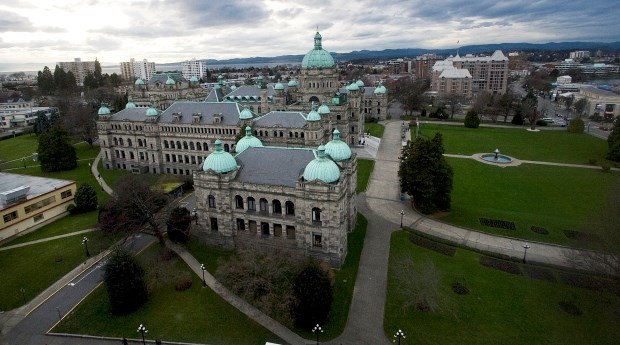2016 B.C. budget
Revenues: $48 billion
Expenditures: $47.5 billion
Surplus: $264 million
Forecast allowance: $350 million
- - -
Property transfer tax changes could bring $1.5B
The property transfer tax was highlighted in the B.C. budget Tuesday, with news that the tax will be waived on new homes valued up to $750,000. The break will be enjoyed by anyone who purchases a home to live in, and they don’t have to be first-time buyers.
The move was in response to increasing pressure mostly from Metro Vancouver to do something about affordability. It means foregoing about $75 million in annual revenue, much of which will be made up by a surtax on transfers of property worth more than $2 million. Values above that mark will be taxed at three per cent, up from two, effective immediately.
The tax is expected to bring in $1.5 billion in revenue this year.
But budget documents are forecasting a 17 per cent decline in the upcoming year, “reflecting an anticipated slowing of market activity and assuming a portion of the strong revenues received in 2015-16 do not carry forward.”
It could be the Finance Ministry’s traditionally conservative approach to revenue projections. Or maybe the government knows something the Metro Vancouver real estate market doesn’t.
The budget also anticipates two more years of decline in the 3.7 per cent range, based on the outlook for housing starts.
Let’s be clear: $9 million for information management
After months of argument about assorted falldowns in information management, Finance Minister Mike de Jong has found some money to put toward the problems.
Elizabeth Denham, the province’s information and privacy commissioner, highlighted the problems last year, pointing to senior government staff routinely deleting emails. A special report was commissioned to recommend changes to procedures.
Tuesday’s budget itemizes $9 million to be spent over the next three years on a new corporate information and records management office.Overall debt on the decline, but interest costs still rising
Much was made in the budget speech about how lower borrowing costs through fiscal discipline have freed up more money for program spending. With four successive balanced budgets, the direct operating debt — the accumulation of deficits over the years — has declined steadily and could be eliminated in a few years, for the first time in a generation. Top marks from credit rating agencies also help to lower borrowing costs, by spurring lower interest charges.
But the last page of the budget and fiscal plan shows interest costs are still going up. B.C. is paying an estimated $2.7 billion this year in borrowing costs. It will decline slightly in the upcoming year, but is forecast to jump to almost $3 billion by 2018.
De Jong said B.C. is only borrowing to build now.
The per capita debt has risen from $10,000 per person in 2010 to $14,277 today, and is projected to increase to $14,783 by 2018.
Housing experts get what they wanted: more data on buyers
It turns out B.C. used to collect exactly what some Metro Vancouver housing experts have been clamouring for: citizenship information on property purchasers.
Foreign ownership has been blamed for some of the skyrocketing values and de Jong said upcoming changes to the property transfer tax system will mean more information will be requested. Purchasers will be required to list their citizenship and corporations will have to disclose the citizenship of their directors. The government said such information was collected until 1998, when the requirement was dropped.
The data will allow monitoring of the volume of foreign investment and the use of bare trusts to assess what effect it’s having on pricing.
De Jong said he is conferring with the Information and Privacy Commission on how to collect the information.
Carbon-tax breaks shift toward taxpayers
The revenue-neutral carbon tax is losing some of its neutrality, to the benefit of taxpayers. The government has to maintain tax breaks that equal or exceed the amount generated by the carbon tax. In 2014-15, the tax reductions amounted to $326 million more than the $1.2 billion collected through the carbon tax. In 2015-16, the gap is estimated to be $514 million, growing to $540 million by 2018. The spread in the tax reductions between personal and business tax measures is almost two-to-one in favour of businesses.



